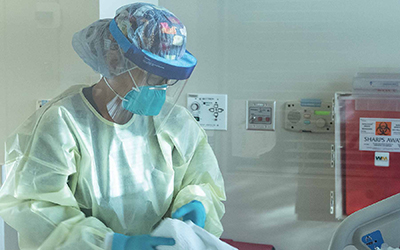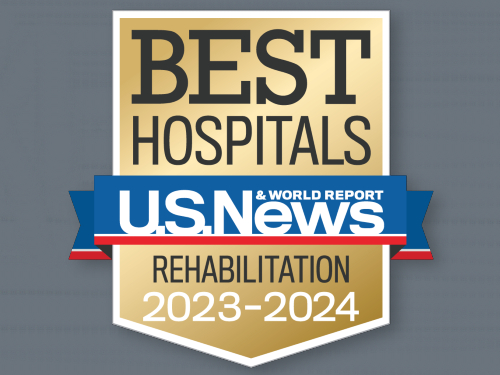

At the time of publication of the article in June, 2020, there was little data on outcomes of COVID-19 survivors, but the researchers had access to a wealth of data on the outcomes of ARDS survivors, as well as those from other pandemics, including SARS in Toronto and Hong Kong and Ebola virus disease in West Africa.
Being bedbound in the ICU can be debilitating in itself. Survivors of critical respiratory illness may experience long-lasting physical, cognitive and psychological dysfunction...
“Long-term sequelae of critically ill COVID-19 patients were unknown at this point, and they still are. We do know that survivors of critical illness experience a range of impairments known as post-intensive care syndrome, which may persist for years and result in poor quality of life,” Dr. Korupolu says.
The article, which discusses challenges and potential solutions for rehabilitation of critically ill COVID-19 patients throughout the continuum of care, came about through Dr. Korupolu, who was part of the early mobility and ICU rehabilitation research team at Johns Hopkins University under the leadership of Dr. Dale Needham.

“Dr. Needham and I had tons of experience with the rehabilitation needs of ICU patients,” she says. “We wrote this in early April, when we knew far less about COVID-19 than we know now. There was so much panic at the time, and our goal was to create a guide about providing care. In general we knew what happened to patients on prolonged mechanical ventilation. We broke that into domains of possible physical and psychological dysfunction and created an algorithm to predict what to expect. At the time we had limited personal protective equipment, and many patients in the ICU were suffering pressure injuries that caused a decline in function. We knew that nurses had to position patients correctly on the ventilator and prevent joint contractures and pressure injuries, but once patients were COVID-19 negative, what then? We outlined what you should do for the patient from ICU to home, and provided guidance on health care needs after discharge.”
1Korupolu R, Francisco GE, Levin H, Needham DM. Rehabilitation of critically ill COVID-19 Survivors. Journal of the International Society of Physical and Rehabilitation Medicine. 2020;3(2):45-52.
